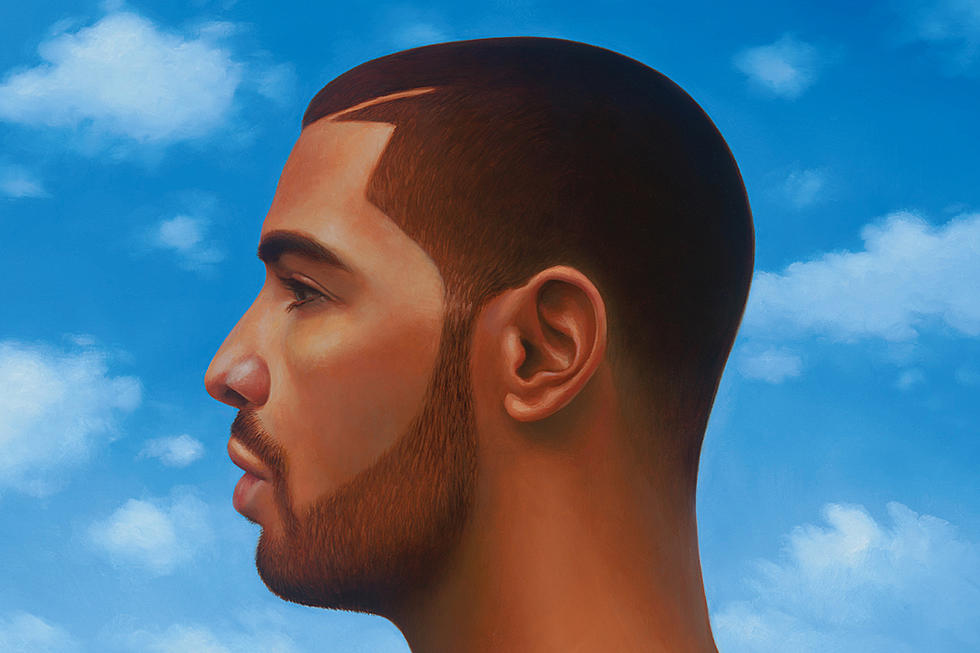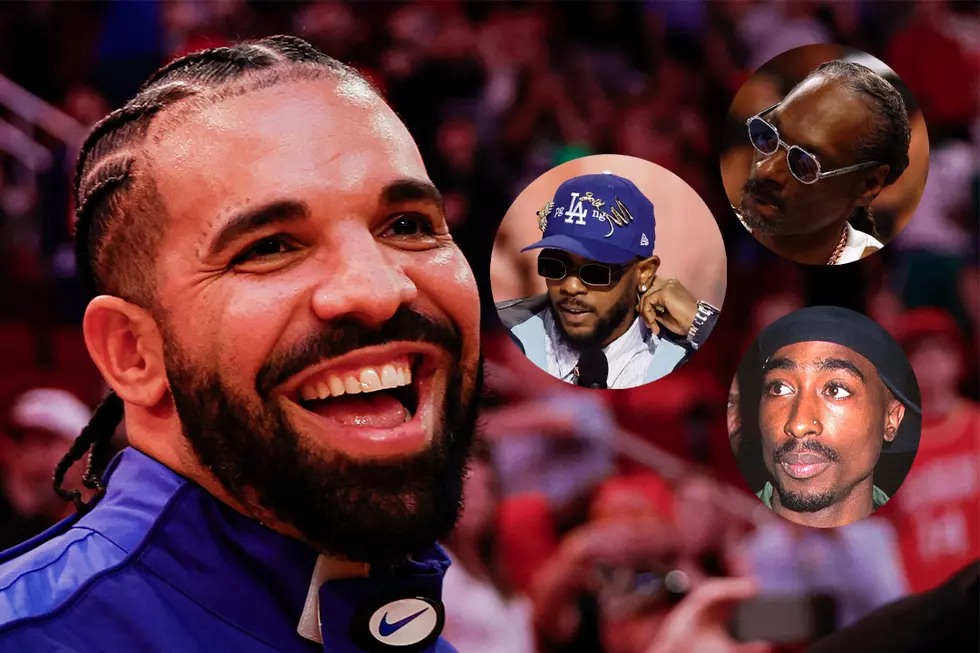
How Drake’s ‘Nothing Was the Same’ Album Made Him the Face of Hip-Hop
At this current juncture, Drake is the biggest rapper in the world. Breaking through in 2009 with the release of his beloved mixtape So Far Gone, he immediately proved himself to be an emotional provocateur and hitmaker, with that 'tape's single “Best I Ever Had” reaching No. 3 on the Billboard Hot 100. This was Drake’s formal introduction to the world, asserting himself as a superstar early on with an ability to seemingly make hit records in his sleep. But he didn’t become the undisputed king of the hill until four years after this breakthrough.
For every superstar rapper, there's a seminal moment where you can directly pinpoint that things clicked for them and they reached the hip-hop mountaintop. For Jay-Z it was Vol. 2… Hard Knock Life. For Eminem, The Marshall Mathers LP. And for Kanye West, the triumph of Graduation. For Drake, that moment arrived with the release of his third album, Nothing Was the Same, in 2013.
Nothing Was the Same is the culmination of four years of mastering a sound that had carried Drake’s music to ubiquity. He entered mainstream hip-hop’s conscience as the new kid on the block with prodigious talent but with each passing single and infectious hook it became increasingly clear that just being one of the best wasn’t enough. He wanted to be alpha dog, and in the lead-up to NWTS, Drake sounded confident and aware of his standing amongst hip-hop's elite. You could hear in how he'd gloat on songs like Migos' "Versace (Remix)" or the arrogant legacy-maker “5AM in Toronto.” He'd already broken the Billboard record for most No. 1 songs on the rap charts. There was clearly a shift of power taking place, as veterans like Lil Wayne, Kanye West, Rick Ross and Jay-Z were no longer Drake’s superiors but actually his peers—and he was lapping the field.
Coming off of the expansive Grammy-winning sophomore album Take Care, Drake and his longtime musical co-creator Noah “40” Shebib sought to release a more concise and cohesive third solo studio album. That was accomplished with Nothing Was the Same, which packs a ton of depth across a brief 13 tracks. The attention to detail is evident, with Drake showing off different versions of himself in tight and fluid sequencing (album intro "Tuscan Leather" is a musical statement in itself). There's unapologetic honesty (“From Time”). The pop records are riskier but also sound effortless (“Hold On We’re Going Home”). The boasts hit harder because they feel validated (“Worst Behavior”). And the anthems are bigger than ever (“Started From The Bottom”).
Not one bar is wasted on Nothing Was the Same—every element, feature and contributor serves a purpose. On “Wu-Tang Forever” Drake flips Wu-Tang’s classic record “It’s Yourz” into a metaphor about not only a woman reaffirming her loyalty but also how the rap game now belongs to Drizzy (“Young nigga came through on his Wu-Tang, and nowadays when I ask about who got it they say, 'It’s yours'”). It's all part of Drake’s genius: taking a classic gritty New York track and flipping it into something a bit softer, all while imposing his will on the game with grade-A raps. It’s a song that only Drake could pull off—a sign of self-awareness from perhaps the most self-aware rapper of his generation.
On an album where Drake is bidding for rap supremacy, it's only right that his sole rap feature is Jay-Z, once a perennial king himself. The two artists linked for “Pound Cake/Paris Morton Music 2” to follow their 2010 collaboration, "Light Up," on which Jay shares the blueprint on how to maneuver rap game pitfalls. "Pound Cake" is not teaching moment, but rather a display of Drake sitting comfortably at the big boy table with Jay—and demanding his respect. "Look, fuck all that 'Happy to be here' shit that y'all want me on/I'm the big homie, they still be tryna lil bro me, dog," he rhymes on the song's second half.
Take Care is hailed by many as Drake’s magnum opus, due to the high quality of the music and Drake’s watershed moment of breaking through as a force in pop culture. But when factoring in qualities such as a concise vision, overarching theme and clarity, there's a strong argument for Nothing Was the Same as Drake's holistically best work. It’s all of Drake’s strongest qualities on steroids, the realization of promise fulfilled and potential reached.
Since the release of Nothing Was the Same, Drake has dropped four full-length releases. There is the 2014 mixtape If You’re Reading This It’s Too Late, which continues to build upon Drake's claims of being the best (a legend, even). It’s a dark listen and the most rap-heavy Drake release to date, yet it lacks the creativity and overall importance in Drake's canon that Nothing Was the Same possesses. Views and More Life grew Drake's larger-than-life persona, destroying the charts and streaming records, but they didn't challenge listeners or Drake in the same way that Nothing Was the Same does. Scorpion is similarly overcrowded, another record that makes you appreciate what Drake accomplished on NWTS.
Nothing Was the Same went on to become the highest-selling rap album of 2013, officially making Drake the face of hip-hop and solidified the rapper as the voice of a generation. No longer was he content with being amongst his idols. The album marked the shift to the Drake that we know today. Nothing was the same, indeed. —Kameron Hay
See Photos of Drake's Different Looks Over the Years
More From XXL









